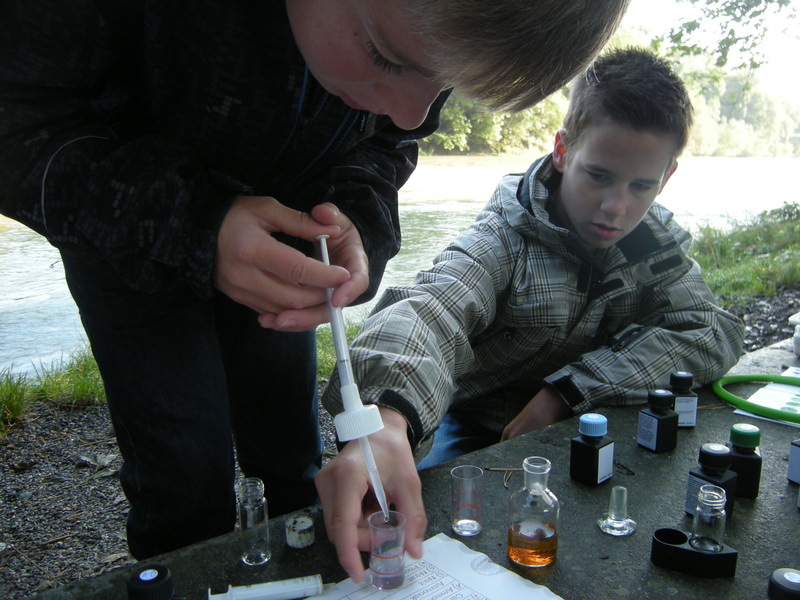This week we have a guest blogger, Vera Gekov. Vera is a recent graduate of the Environmental Leadership program at Naropa University in Boulder, CO, USA. She was drawn to GLOBE because of the program’s commitment of increasing environmental literacy in youth. She completed her Applied Leadership Project by connecting with GLOBE teachers and country coordinators to understand environmental stewardship.
Through my graduate research project, I was able to connect with GLOBE and understand more about their commitment to increasing overall environmental literacy. What struck me most about GLOBE is that while students are still learning from books and lectures in classrooms, they are also venturing outside. They are encouraged to learn from their own curiosity and engage with the very elements and systems that they are studying. As GLOBE students worldwide participate in the investigations, they are transported from the traditional way of learning science to a more experiential process.
To focus on the stewardship aspect of GLOBE’s mission for my project, I connected with teachers to explore how the program is enhancing environmental stewardship and coming alive in the greater GLOBE community. I started by investigating how the program’s hands-on-science program connects students to nature through activities and observations in their communities. I sought insight from the teachers by asking them how they have connected the GLOBE Program’s science protocols with stewardship and environmental justice issues. The questions I asked were about activities that encouraged deep ecological perspectives and focused on how both the teacher’s and student’s relationship to nature were changed by the program.
I interviewed GLOBE teachers in the U.S. and abroad and reviewed the Earth Day Competition videos in which students demonstrated how participating in the GLOBE Program has inspired them to improve the environment of their home, school, or local community. Through my research process, I heard many amazing stories of how students are using the protocols to contribute to protecting the natural world around them.

Students perform hydrology protocols alongside the Thur River near Uzwil, Switzerland. Photo courtesy of Markus Eugster.
I discovered that as students perform the GLOBE protocols and become more familiar with their environment they become increasingly aware of what’s happening with their local ecology. One teacher stated that because of GLOBE, her students noticed traces of oil in the wetland areas that surrounded their school and they determined that the oil was coming from a nearby road. This demonstrates how the students have become tuned into their environments through consistent observation.
I asked teachers how their relationship with the natural world had changed after being involved in the GLOBE Program and was pleased to learn that it had become stronger. For example, the one GLOBE Country Coordinator sent me this response: “Teachers and students have developed an intimate relationship with clouds, soil, and water. In addition, the value of wildlife conservation and environmental protection has been enhanced for both teachers and students after practicing GLOBE protocols.”
My survey prompted teachers to comment on the experiential research approach. One teacher said, “Hands-on science definitely provides the opportunity to experience the natural world with fresh eyes. You can go out to the same area and every time it will be different. The variables will change. I believe you’re more apt to explore and investigate when you’re out in nature.” Another teacher spoke of how they stay out at their site past sunset and watch the night sky. She described how the students would “get really quiet and listen to the sounds.” To me this type of narrative beautifully illustrates the essence of GLOBE.
Suggested Activity: Have you experienced a connection with your local environment by performing the GLOBE protocols? June is the perfect time to begin making a connection by participating in the Great Global Investigation of Climate and continuing to take your Phenology and Climate measurements. As you learn about your environment, you may begin to notice when changes occur. Using those changes you can develop an exciting research project. Let us know about what you’ve seen by leaving a comment, sending us an email or connecting with us on our Facebook Page – we’d love to hear from you!

